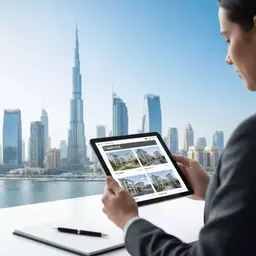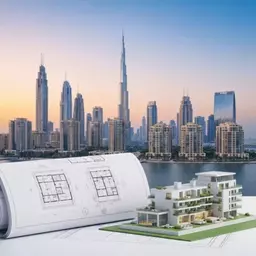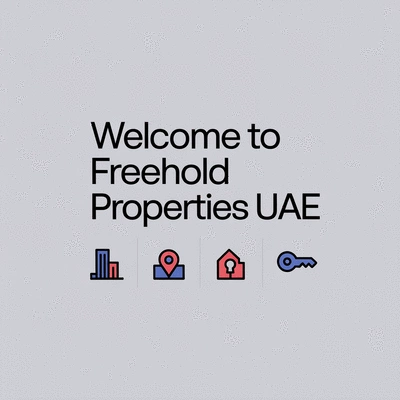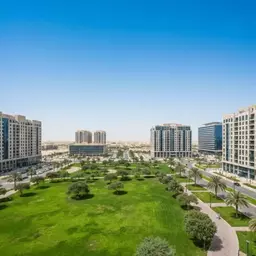Considering a smart investment in the UAE real estate market? It's vital to understand freehold property ownership. This ownership type not only grants you full control but also opens up a world of opportunities for profits and lifestyle enhancements. Dive in to discover the essentials you need to navigate this exciting market!
What You Will Learn
- Definition of Freehold Property: Full ownership of both land and building, offering complete control over your investment.
- Designated Freehold Zones: Key locations like Dubai and Abu Dhabi allow foreign investors to own properties freely.
- Eligibility Criteria: Key requirements include location, proper documentation, and understanding local laws.
- Legal Landscape: Foreign ownership laws have evolved, offering insights into property types and inheritance rights.
- Essential Purchase Steps: A clear process for purchasing, from choosing the right area to registering the Title Deed.
Essential Steps in the Freehold Property Purchase Process
Navigating the freehold property purchase process in the UAE involves several critical steps, from initial research to final ownership transfer. Below is a visual representation of these key stages.
1. Research Areas
Compare Dubai (vibrant lifestyle, high rental yields) vs. Abu Dhabi (laid-back, cultural).
2. Engage Agent
Work with licensed real estate agents for exclusive listings and negotiation expertise.
3. Draft MOU
Negotiate terms and draft a Memorandum of Understanding with property details & payment terms.
4. Obtain NOC
Secure a No Objection Certificate from the developer to proceed with the sale.
5. Transfer Ownership
Complete legal transfer at the Dubai Land Department, paying applicable fees.
6. Register Title Deed
Finalize the purchase by registering the Title Deed as proof of ownership.
Understanding Freehold Property Ownership in the UAE for Foreign Investors
Are you considering investing in the bustling real estate market of the UAE? Understanding freehold property ownership is crucial, especially for foreign investors. In simple terms, freehold properties allow you to own the land and the building on it, giving you complete control of your investment. This ownership type is highly appealing because it offers a sense of security and permanence that other forms of ownership, like leasehold, simply do not.
In the UAE, freehold properties are primarily available in designated zones such as Dubai and Abu Dhabi, where international buyers can freely own properties. These areas have been designed to encourage foreign investment, making it easier for you to find your dream home or investment opportunity.
What is Freehold Property and How Does it Work?
Freehold property means that you own the property outright, without any time limit. This ownership is more than just a title; it provides full rights to use, lease, or sell the property as you wish. Understanding how freehold property works is vital to making informed decisions about your investment.
- Full Ownership: You have complete ownership of both the property and the land it sits on.
- Control: You can renovate, sell, or lease your property at your discretion.
- Investment Potential: Freehold properties often appreciate in value, making them a smart long-term investment.
This type of ownership opens doors to a variety of potential opportunities, including rental income. Imagine being able to generate passive income from a property in a thriving market like Dubai or Abu Dhabi!
Eligibility Criteria for Foreign Buyers in UAE Freehold Zones
As a foreign investor, it's essential to know the eligibility criteria for buying freehold properties. Thankfully, the UAE has been very welcoming to international buyers, but there are a few things to keep in mind:
- Location Matters: You must focus on properties located in designated freehold areas.
- Documentation: Ensure you have valid identification and proof of income or financial capability.
- Legal Framework: Familiarize yourself with local laws to ensure compliance throughout the buying process.
Meeting these criteria will make your journey smoother as you explore your options in the UAE real estate market.

Exploring Foreign Ownership Laws in the UAE
The legal landscape for foreign property ownership in the UAE can be complex, but it has evolved to be more accommodating. Understanding these laws is crucial for a successful investment. Here are some key points to consider:
- Property Types: Foreigners can own freehold properties in designated areas, while leasehold options are available in other locations.
- Inheritance Rights: Certain regulations govern how foreign-owned properties are inherited, so it's wise to consult a legal expert.
- Restrictions: Some properties may have restrictions on use or sale, so always do your due diligence.
With the right information, navigating through these laws can be manageable. I always recommend consulting with a local expert, like those at Leaders in Law, to ensure you're well-informed and prepared for your investment journey. For more comprehensive information on expatriates buying property in the UAE, you can visit the official UAE government portal. Additionally, the U.S. Department of State offers detailed reports on the investment climate, including real estate regulations.
We Want to Hear From You!
What factors are most important to you when considering a freehold property in the UAE? Share your thoughts below:
Essential Steps in the Freehold Property Purchase Process
Buying a freehold property in the UAE is an exciting journey, but it can also be a bit overwhelming! There are several critical steps to follow to ensure the process goes smoothly. From selecting the right area to understanding legal requirements, I’m here to guide you through these essential steps. Let's break it down!
Researching Popular Freehold Areas: Dubai vs. Abu Dhabi
When considering a freehold property, choosing the right location is key. Both Dubai and Abu Dhabi offer unique benefits that cater to different lifestyles and investment goals. Here’s a quick comparison of what each city has to offer:
- Dubai: Known for its vibrant lifestyle, luxury amenities, and strong rental yields, especially in areas like Dubai Marina and Downtown Dubai.
- Abu Dhabi: Offers a more laid-back atmosphere with cultural experiences and family-friendly communities, such as Saadiyat Island and Al Reem Island.
- Both cities have seen significant infrastructure developments, which can enhance property values over time!
As you embark on your search, consider your lifestyle preferences and investment objectives. This will help you narrow down the best locations for your needs.
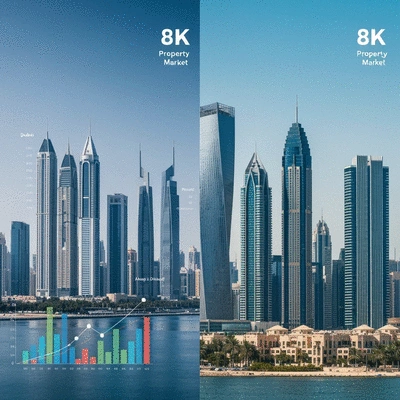
Working with Licensed Real Estate Agents in the UAE
Finding the right property can be daunting, but working with a licensed real estate agent can make it much easier! These professionals have in-depth knowledge of the market and can help you find properties that match your criteria. Here are some benefits of enlisting an agent's help:
- Access to exclusive listings that may not be publicly advertised.
- Expert negotiation skills to secure the best deal possible.
- Guidance through the legal and logistical processes involved in purchasing.
At Freehold Properties UAE, we pride ourselves on connecting buyers with trusted agents who understand the local market. This partnership can save you time and reduce stress!
Negotiating the Purchase: Crafting a Memorandum of Understanding (MOU)
Once you’ve found a property you love, it’s time to negotiate. The first step is to draft a Memorandum of Understanding (MOU), which outlines the agreement between you and the seller. Here’s what to include:
- Property details, including the price and any special conditions.
- Deposit amount and payment terms.
- A timeline for moving forward with the transaction.
Having a clear MOU is crucial as it protects both parties and sets a solid foundation for the transaction. Always ensure you understand what you're agreeing to before signing!
Obtaining the No Objection Certificate (NOC)
The next step involves obtaining a No Objection Certificate (NOC) from the developer. This document confirms that the developer has no objections to the sale of the property. Typically, the process includes:
- Submitting the required documents, including the signed MOU and identification.
- Paying a small fee for the certificate.
- Waiting for the developer’s approval, which usually takes a few days.
It's essential to secure the NOC before proceeding to the ownership transfer, as it’s a legal requirement in the UAE.
Transferring Ownership at the Dubai Land Department
With the NOC in hand, you can now move forward with the ownership transfer at the Dubai Land Department. This step is critical and involves a few key actions:
- Completing the transfer forms provided by the department.
- Paying the applicable transfer fees, which can vary depending on the property's value.
- Providing the necessary documentation, including the NOC and identification.
This process solidifies your ownership and is an exciting milestone in your property journey!
Understanding the Title Deed Registration Process
The final step in your purchase involves registering the Title Deed. This document serves as proof of ownership and is essential for any future transactions or property management. Here are the key points to remember:
- Ensure all fees are paid and documents are complete before heading to the Dubai Land Department.
- Keep a copy of the Title Deed safe, as you’ll need it for any modifications or sales in the future.
- Consider consulting with a legal expert to ensure all aspects are properly handled.
By understanding these steps, you’ll navigate the freehold property purchase process with confidence. As always, I’m here to help you every step of the way!
Frequently Asked Questions (FAQs)
Q1: What is freehold property ownership in the UAE?
A1: Freehold property ownership in the UAE grants you complete ownership of both the land and the building on it, without any time limit. This provides full rights to use, lease, or sell the property as you wish.
Q2: Can foreign investors buy freehold properties in the UAE?
A2: Yes, foreign investors can buy freehold properties in designated zones within the UAE, such as Dubai and Abu Dhabi. These areas are specifically established to encourage international investment.
Q3: What are the main differences between investing in Dubai and Abu Dhabi?
A3: Dubai is known for its vibrant lifestyle, luxury amenities, and strong rental yields, while Abu Dhabi offers a more laid-back atmosphere with cultural experiences and family-friendly communities. Both cities offer significant infrastructure developments that can enhance property values.
Q4: What is a No Objection Certificate (NOC) and why is it important?
A4: A No Objection Certificate (NOC) is a document from the property developer confirming they have no objections to the sale. It is a legal requirement in the UAE and must be secured before proceeding with the ownership transfer.
Q5: What is the final step in the freehold property purchase process in the UAE?
A5: The final step is registering the Title Deed at the Dubai Land Department. This document serves as official proof of ownership and is crucial for any future transactions or property management.
Recap of Key Points
Here is a quick recap of the important points discussed in the article:
- Freehold Ownership: Allows complete ownership of the property and land, offering security and control over your investment.
- Eligibility Criteria: Foreign buyers must focus on designated freehold areas and ensure proper documentation and legal compliance.
- Understanding Laws: Familiarize yourself with foreign ownership laws, including property types, inheritance rights, and potential restrictions.
- Key Steps in Purchase: Research locations, work with licensed agents, draft a Memorandum of Understanding, obtain a No Objection Certificate, and ensure proper title deed registration.
- Location Insights: Dubai and Abu Dhabi offer unique benefits, catering to different lifestyles and investment goals.


